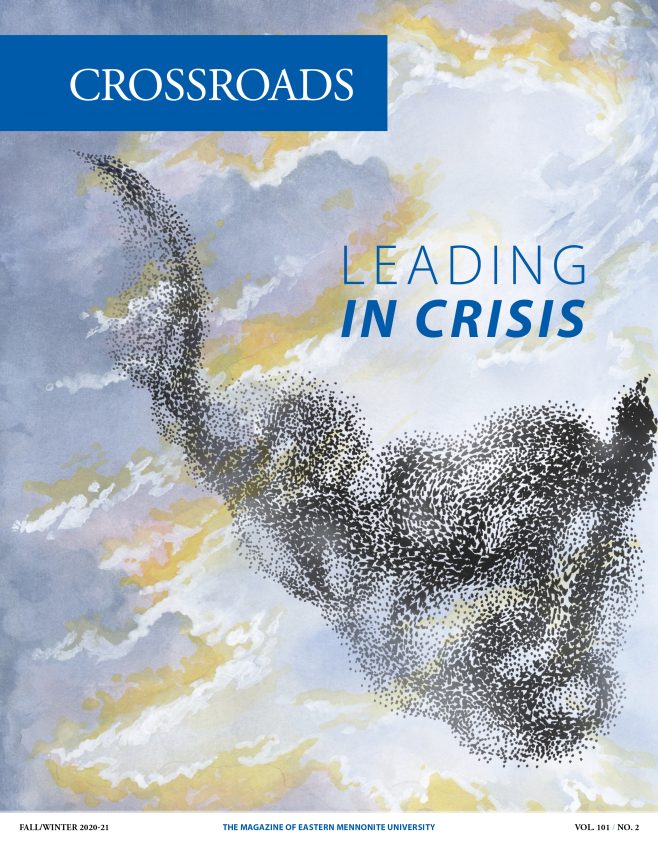
EDUCATOR AND ARTS INNOVATOR RAM BHAGAT GC ’19 has brought drums and lively audience interaction to his many guest teaching appearances at EMU. Limited in both time and space by the virtual Tentalks format, for this visit he deftly wove poetry, lyrics and personal reflection into an introduction to racism, anti-racism, and the devastating effects of systemic racism and oppression on Black people.
Bhagat attended Catholic school as a child, he shared. “Even if [that] experience didn’t nurture my soul, I did learn how to code switch, square dance, speak up for myself, study, understand hypocrisy and write poetry. It was my mom, her sisters, my dad, my uncles, and my community that taught me about Black transcendentalism and how to transcend the limitations of race.”
Community and sharing in relationship is at the heart of his work. As the manager of school culture and climate strategy with Richmond Public Schools, he promotes an equitable and just learning environment while reducing the disproportionality in suspensions of students of color. In schools and his community, he advocates for safe spaces for people of color, and their allies, in the work of healing and dismantling racism. Bhagat holds a doctoral degree in education and recently added a graduate certificate in restorative justice. He is a trainer in EMU’s Strategies for Trauma Awareness and Resilience, and taught in the Summer Peacebuilding Institute.
Here are three themes from his TenTalk:
SAFE SPACES
Black people need a safe space to unpack the traumatic effects of systemic racism and oppression. Understanding generational historic and collective trauma is essential for healing from unresolved historical grief, ongoing oppression and racial stress.
According to Kazu Haga, “If we carry intergenerational trauma – and we do – then we also carry intergeneration wisdom. It’s in our genes and it’s in our DNA,” so we must, as Bob Marley encourages us in Redemption Song, “emancipate yourself from mental slavery/none but ourselves can free our mind.”
APOLOGY IS NOT ENOUGH
Although political apologies have been offered, the United States has not acknowledged or accepted responsibility for the generational harm caused by its racist institutions, policies and practices. It will take so much more than apologies to heal this divided nation. This transformational work requires white allies, advocates, activists and abolitionists to dismantle those oppressive structures built by their ancestors.
SEEDS OF HOPE
In one of my classes at EMU, around the time that Alton Sterling and Philando Castile were murdered, I gained some tools that helped me to develop a workshop titled “Building Resilience for Challenging Systemic Racism.” We interrogated white privilege, white oblivion, white fragility. We also looked at Black guilt, Black rage and we did it from an intergenerational and an interracial perspective. We integrated arts, drumming, dance and drama. We created a space where we were vulnerable to share our experiences and find our common humanity. I feel like, through culturally responsive circles and through digging deep into the roots of trauma and historical trauma, we can find seeds for hope and seeds for growth…The starting point is a clear, concise and compelling definition of racism. That is a starting point for us to look at ways to dismantle the system together. Then we need to create space for people of color to address the impact of racism on us as a group and to have places where white folks can honestly engage in conversation and exploration of the impact of racism on their families.
